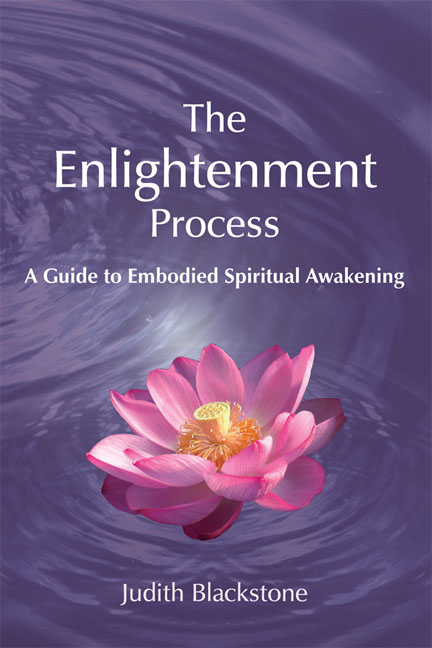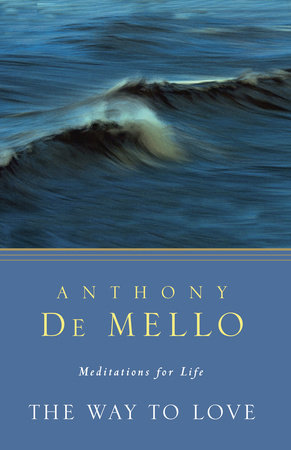YOU MIGHT ALSO LIKE
CLEAR ALL
BY TOPIC
BY TYPE
FILTER

TOPIC
- Emotional and Mental Health (33)
- Black Well-Being (30)
- Imagination and Creativity (27)
- Search for Purpose (26)
- Activism/Service (24)
- Transformation (24)
- Self-Reflection Practices (22)
- Self-Realization (21)
- Self-Mastery (20)
- Self-Limiting Beliefs (19)
- Creative Well-Being (18)
- Burnout (17)
- Inner Life (17)
- Self-Love (17)
- Trauma Healing (17)
- Self-Acceptance (16)
- Self-Healing (16)
- Finding Meaning (15)
- Human Potential (15)
- Resilience (15)
- Self-Actualization (15)
- Goal Setting (14)
- Self-Expression (14)
- Women’s Well-Being (14)
- Authenticity (13)
- Fellowship and Community (13)
- Growth Mindset (13)
- Awareness (12)
- Confidence (12)
- Courage (12)
- Fear (12)
- Happiness (12)
- Meditation (12)
- Neurodiversity (12)
- Spiritual Growth (12)
- Well-Being (12)
- Young Adult Well-Being (12)
- Caregiver Well-Being (11)
- Consciousness (11)
- Entrepreneurship (11)
- Identity (11)
- Journaling (11)
- Motivation (11)
- Self-Esteem (11)
- Stress Management (11)
- Buddhism (10)
- Empowerment (10)
- Habits of Mind (10)
- Racism (10)
- Self-Compassion (10)
- Self-Worth (10)
- Setting Limits and Boundaries (10)
- Social Justice (10)
- Spiritual Development (10)
- Athlete Well-Being (9)
- Community Healing (9)
- Compassion Fatigue (9)
- Family Dynamics (9)
- Honoring Emotion (9)
- Latinx Well-Being (9)
- Autism (8)
- Habit Formation (8)
- Negative Self-Talk (8)
- Relationship Challenges (8)
- Self-Control (8)
- Self-Pressure (8)
- Veteran Well-Being (8)
- Environmental Justice (7)
- Joy (7)
- Presence (7)
- Rest (7)
- Sleep (7)
- Spiritual Awakening (7)
- Yoga (7)
- Asking for Help (6)
- Breathwork (6)
- Cross-Cultural Dynamics (6)
- Decision Making (6)
- Failure (6)
- Identity Shifts (6)
- Inner Peace (6)
- Life Challenges (6)
- Manifestation (6)
- Men’s Well-Being (6)
- Motherhood (6)
- Neuroscience (6)
- Parenting (6)
- Physical Health (6)
- Positive Self-Talk (6)
- Psychology and Spirituality (6)
- Racial Healing (6)
- Self-Reliance (6)
- Shame (6)
- Social Responsibility (6)
- Stress (6)
- Unfulfilled Career (6)
- Vulnerability (6)
- Work-Life Balance (6)
- Compassion (5)
- Connection with Nature (5)
- Criticism and Rejection (5)
- Empathy (5)
- Exercise (5)
- Focus (5)
- Healing Approaches (5)
- Indigenous Well-Being (5)
- Intention (5)
- Mind-Body Connection (5)
- Mindfulness (5)
- Offering Support to Others (5)
- Passion (5)
- Positive Thinking (5)
- Productivity (5)
- PTSD (5)
- Relationship with Time (5)
- Self-Discipline (5)
- Soul Mission (5)
- Spiritual Quest (5)
- Anger Management (4)
- Anxiety (4)
- Belonging (4)
- Communication Skills (4)
- Connection (4)
- Diet and Nutrition (4)
- Embodiment (4)
- Enlightenment (4)
- Enneagram (4)
- Freedom (4)
- Grief (4)
- Handling a Loved One’s Illness (4)
- Hero’s Journey (4)
- Highly Sensitive People (4)
- Hope (4)
- Inner Strengths (4)
- Inspiration (4)
- Jungian Analysis (4)
- Leadership (4)
- Loneliness (4)
- Love (4)
- Mentoring (4)
- Military to Civilian Re-entry (4)
- Mindfulness Practices (4)
- Play (4)
- Problem Solving (4)
- Relationship with Money (4)
- Romantic Relationships (4)
- Tibetan Buddhism (4)
- Time Management (4)
- Visualization (4)
- AAPI Well-Being (3)
- Accepting Love (3)
- ADD/ADHD (3)
- Affirmations (3)
- Archetypes (3)
- Ayurveda (3)
- Body Image (3)
- Cancer (3)
- Climate Change (3)
- Collective Trauma (3)
- Female Empowerment (3)
- Following Bliss (3)
- Friendship (3)
- Gratitude (3)
- Grit (3)
- Inner Child (3)
- Interdependence (3)
- Intuition (3)
- Kindness (3)
- Letting Go (3)
- LGBTQIA Well-Being (3)
- Living as an Empath (3)
- Living with Illness (3)
- Neoshamanism (3)
- Oneness (3)
- Patience (3)
- Peak Performance (3)
- Poetry (3)
- Psychology (3)
- Race and Gender (3)
- Racial Identity (3)
- Racial Justice (3)
- Ritual (3)
- Self-Reckoning (3)
- Social Psychology (3)
- Spiritual Healing (3)
- Spirituality and Health (3)
- Synchronicity (3)
- Talk Therapy (3)
- Values (3)
- Western Astrology (3)
- Work Challenges (3)
- Acupressure (2)
- Addiction (2)
- Addiction Recovery (2)
- Awe (2)
- Bullying (2)
- Cognitive Behavioral Therapy (2)
- Collaboration (2)
- Curiosity (2)
- Depression (2)
- Digital Life (2)
- Disabled Well-Being (2)
- Dysfunctional Childhood (2)
- Ecospirituality (2)
- Ego (2)
- Emotional Intelligence (EQ) (2)
- Energy Healing (2)
- Faith (2)
- Fatherhood (2)
- Generosity (2)
- Guided Meditation (2)
- Guilt (2)
- Higher Calling (2)
- Integrity (2)
- Masculine/Feminine Dynamics (2)
- Mindfulness Meditation (2)
- Non-Duality (2)
- Nonbinary Well-Being (2)
- Performance Anxiety (2)
- Personality Typing (2)
- Racial Discrimination (2)
- Science and Spirituality (2)
- Shadow (2)
- Shamanic Healing (2)
- Slumps (2)
- Social Media Addiction (2)
- Somatic Practices (2)
- Spiritual Life (2)
- Spirituality and Politics (2)
- Subconscious (2)
- Suicide (2)
- Sustainability (2)
- Teacher Burnout (2)
- The Unconscious (2)
- Transgender Well-Being (2)
- Wholeness (2)
- Willpower (2)
- Work Relationships (2)
- Youth Activism (2)
- Zen Buddhism (2)
- Zen Meditation (2)
- Abandonment (1)
- Acceptance (1)
- Access to Education (1)
- Adaptability (1)
- Afterlife (1)
- Aging (1)
- Altered States (1)
- Art Therapy (1)
- Astral Projection (1)
- Betrayal (1)
- Brain Health (1)
- Buddha Nature (1)
- Building Culture (1)
- Child’s Trauma (1)
- Children’s Well-Being (1)
- Christian Mysticism (1)
- Chronic Anxiety (1)
- Chronic Health Conditions (1)
- Codependency (1)
- Cognition (1)
- Comparing Belief Traditions (1)
- Competition (1)
- Cross-Cultural Parenting (1)
- Death or Loss of a Child (1)
- Dharma (1)
- Disconnection (1)
- Discrimination (1)
- Doubt (1)
- Dream Analysis (1)
- Dreamwork (1)
- Economic Justice (1)
- Emotional Labor (1)
- Faith and Identity (1)
- Feminism (1)
- Fiction (1)
- Financial Instability (1)
- Forest Bathing (1)
- Forgiveness (1)
- Gender Identity (1)
- Generational Healing (1)
- Global Challenges (1)
- God (1)
- Goddess (1)
- Herbal Supplementation (1)
- Holism (1)
- Humility (1)
- Illness and Injury (1)
- Imposter Syndrome (1)
- Incarceration (1)
- Indigenous Healing Approaches (1)
- Insight (Vipassana) Meditation (1)
- Integrative Medicine (1)
- Intimacy (1)
- Jealousy/Envy (1)
- Karma (1)
- Learning Styles (1)
- LGBTQIA Parents (1)
- LGBTQIA Sexuality (1)
- Life-Altering Injury (1)
- Lifestyle Medicine (1)
- Lucid Dreaming (1)
- Magic (1)
- Managing Energy (1)
- Marriage (1)
- Memoir (1)
- Mental Health Challenges (1)
- Midlife Crisis (1)
- Moral Philosophy (1)
- Mythology (1)
- Narcissism (1)
- Native American Beliefs (1)
- Naturopathy (1)
- Obsessions/Compulsions (1)
- OCD (1)
- Optimism (1)
- Past Life Regression (1)
- Perception (1)
- Personality Disorders (1)
- Philosophical Approaches (1)
- Polyvagal Theory (1)
- Positive Psychology (1)
- Poverty/Economic Inequality (1)
- Quitting Your Job (1)
- Regret (1)
- Sacred Feminine (1)
- Saturn Return (1)
- Self-Employment (1)
- Self-Hypnosis (1)
- Sexual Assault or Abuse (1)
- Sexuality (1)
- Shamanism (1)
- Sleep Disorders (1)
- Social Anxiety (1)
- Speaking Your Truth (1)
- Spiritual Practices (1)
- Stoicism (1)
- Suffering (1)
- Sutras (1)
- Synesthesia (1)
- Taoism (1)
- Tarot (1)
- The Divine (1)
- Toxic Relationships (1)
- Transitions (1)
- Transpersonal Psychology (1)
- Trust (1)
- Vitamin Supplementation (1)
- Wake-Up Calls (1)
- Whiteness (1)
- Witch (1)
- Witchcraft (1)
- Women’s Rights (1)
- Work Ethic (1)
FILTER

TEACHER
- Oprah Winfrey (4)
- Wayne Dyer (4)
- Amy Morin (3)
- Brendon Burchard (3)
- Brian Tracy (3)
- don Jose Ruiz (3)
- Elizabeth Gilbert (3)
- James Hollis (3)
- Jean Houston (3)
- Ken Wilber (3)
- Kenneth Robinson (3)
- Maya Angelou (3)
- Thomas Merton (3)
- Angeles Arrien (2)
- Audre Lorde (2)
- Elisa Shankle (2)
- Gay Hendricks (2)
- J. Krishnamurti (2)
- James Fadiman (2)
- Jay Shetty (2)
- Joseph Campbell (2)
- Judith Orloff (2)
- Neil Pasricha (2)
- Rick Hanson (2)
- Russ Hudson (2)
- Sonia Sanchez (2)
- Terri Cole (2)
- Acharya Shunya (1)
- Adyashanti (1)
- Alain de Botton (1)
- Alan Watts (1)
- Alejandro Jodorowsky (1)
- Alexandra Elle (1)
- Amy Scher (1)
- Andrew Holecek (1)
- Andy Puddicombe (1)
- Anthony de Mello (1)
- Bessel van der Kolk (1)
- Blaise Aguirre (1)
- Brené Brown (1)
- Caroline Myss (1)
- Chelsey Luger (1)
- Colleen Saidman Yee (1)
- Cynthia Bourgeault (1)
- David Bohm (1)
- David Feinstein (1)
- David Spiegel (1)
- Diane Stein (1)
- don Miguel Ruiz (1)
- don Miguel Ruiz Jr. (1)
- Eckhart Tolle (1)
- Elaine Aron (1)
- Eric Maisel (1)
- Ethan Nichtern (1)
- Gangaji (1)
- Gaylon Ferguson (1)
- Glennon Doyle (1)
- HeatherAsh Amara (1)
- Howard Thurman (1)
- Iskra Lawrence (1)
- Iyanla Vanzant (1)
- Jack Kornfield (1)
- Jacqueline Carter (1)
- James Carse (1)
- James Hillman (1)
- Jasmine Marie (1)
- Jeff Brown (1)
- Jerry M. Ruhl (1)
- Jessamyn Stanley (1)
- Jessica Dore (1)
- Joan Halifax (1)
- Joe Dispenza (1)
- John O’Donohue (1)
- Jonathan Haidt (1)
- Jonathan Van Ness (1)
- Judith Blackstone (1)
- Kelly McGonigal (1)
- Lama Rod Owens (1)
- Lama Surya Das (1)
- Lama Tsultrim Allione (1)
- Latham Thomas (1)
- Leah Guy (1)
- Lewis Howes (1)
- Light Watkins (1)
- Lisa Feldman Barrett (1)
- Lodro Rinzler (1)
- Lucille Clifton (1)
- M. Scott Peck (1)
- Marc Ian Barasch (1)
- Mark Manson (1)
- Mark Nepo (1)
- Martha Beck (1)
- Michael A. Singer (1)
- Michael Pollan (1)
- Nancy Mellon (1)
- Nicole LePera (1)
- Nikki Mirghafori (1)
- Panache Desai (1)
- Patanjali (1)
- Paul Gilbert (1)
- Paulo Coelho (1)
- Philip Goldberg (1)
- Piero Ferrucci (1)
- Resmaa Menakem (1)
- Rich Fernandez (1)
- Rich Roll (1)
- Robert A. Monroe (1)
- Rodney Yee (1)
- Rudolph Ballentine (1)
- Rumi (1)
- Sandra Ingerman (1)
- Shakti Gawain (1)
- Shelly Tygielski (1)
- Socrates (1)
- Sonia Choquette (1)
- Stanley Krippner (1)
- Stephen Cope (1)
- Stephen Covey (1)
- Stephen Porges (1)
- Steven Kotler (1)
- Swami Mukundananda (1)
- The Dalai Lama (1)
- Thubten Chodron (1)
- Tony Robbins (1)
- Yongey Mingyur Rinpoche (1)
- Yung Pueblo (1)
- Zainab Salbi (1)












